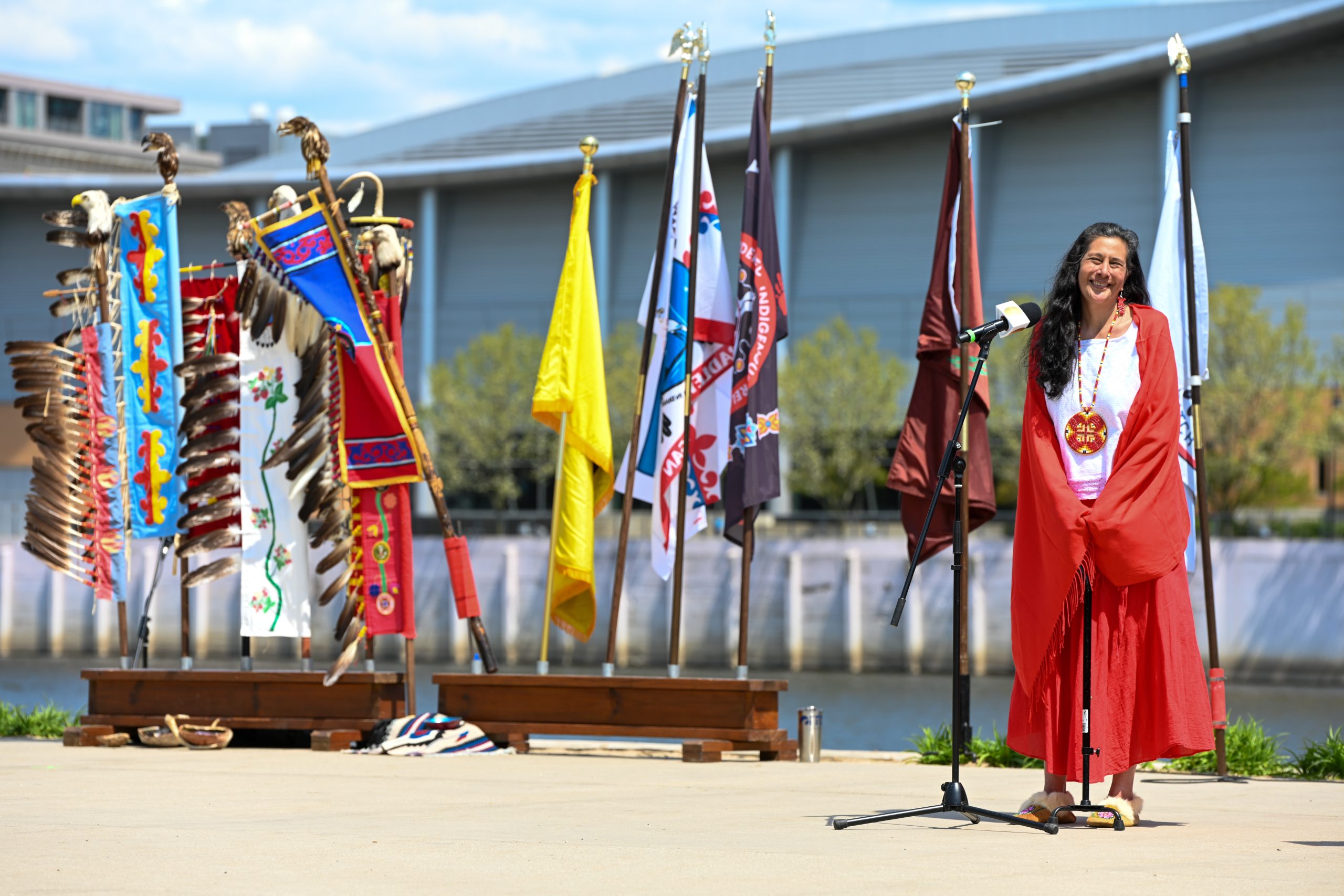Podcast: Play in new window | Download | Embed
The percentage of female engineers varies by specialty, but 2021 figures show only 9% of Mechanical Engineers are women. A Native student at Arizona State University is working to change that, as Alex Gonzalez reports.
Claire Gunderson (enrolled member of the Chickasaw Nation of Oklahoma and the Jemez and Laguna Pueblo of New Mexico) just started her first year at ASU studying mechanical engineering.
She says her passion for this field started by helping her dad with his cars in her hometown of Albuquerque, N.M. And while she’s disappointed to see a lack of diversity in the field, Gunderson says she’s optimistic about the future.
“I guess it’s a little sad, but like, more women aren’t involved in engineering and it just inspires me to pursue what I want to do and make connections with everybody around me, no matter if they’re male or female or whatever.
ASU awarded bachelor degrees in engineering to 460 women in 2021.
Gunderson is also a National Indigenous Recognition Scholar. She graduated high school with top academic standing.
Only 8% of ACT tested American Indian and Alaskan Native High School graduates meet college readiness and STEM benchmarks, according to the American Indian Science and Engineering Society.
During her time at ASU, Gunderson says she hopes to become a member of the Formula SAE club, which each year sets out to build a Formula-style race car to compete at an annual Formula student competition in Michigan.
She says she’s eager to see the process of building a prototype for anyone considering the engineering field.
Gunderson recommends taking time to explore your options and find the best fit.
“If you’re really into figuring stuff out and all that, like (there’s) bound to be something in engineering that you’ll be able to find, whether it’s like mechanical, electrical, or aerospace, anything like that, it’s just really fun.”
Gunderson and more than 144,000 other Sun Devils have begun their degree programs this fall at ASU campuses or online.
The largest student enrollment in the university’s history.
 The Michigan Bar Association’s representative committee will grant its 2023 Unsung Heroes Award to the Honorable Melissa L. Pope, the Chief Tribal Court Judge of the Nottawaseppi Huron Band of the Potawatomi on September 24.
The Michigan Bar Association’s representative committee will grant its 2023 Unsung Heroes Award to the Honorable Melissa L. Pope, the Chief Tribal Court Judge of the Nottawaseppi Huron Band of the Potawatomi on September 24.
According to the Michigan Bar Association, the Unsung Hero Award is presented to a lawyer who has exhibited the highest standards of practice and commitment for the benefit of others.

Emily Edmonds Harrows. (Courtesy The Johns Hopkins Center for Indigenous Health)
September is Suicide Prevention Month and new data shows that the suicide rate in the US has increased dramatically over the past 20 years.
As the Mountain West News Bureau’s Kaleb Roedel reports, that’s especially true for Native Americans and Alaska Natives.
The analysis was done by Pew Charitable Trusts.
It found that from 2000 to 2020, the national suicide rate grew 30%. For Native American and Alaskan Native women, the rate spiked more than 130%. For men, it jumped over 90%.
Emily Edmonds Harrows is with the Johns Hopkins Center for Indigenous Health.
She says a major factor is the historical trauma caused by colonization and the boarding school era.
“If a parent is traumatized because of these experiences and and experiences those things and not allowed to talk about it and not allowed to cope with it, they then pass along that trauma to their children and sort of this cycle perpetuates itself.”
She says there’s also a lack of funding for mental healthcare services in tribal communities.
But efforts to bridge the gap are coming from the Indian Health Service, which is training tribal members to respond to people in crisis
If you or someone you know needs help, call or text the national suicide and crisis lifeline at 988.
Get National Native News delivered to your inbox daily. Sign up for our newsletter today.



